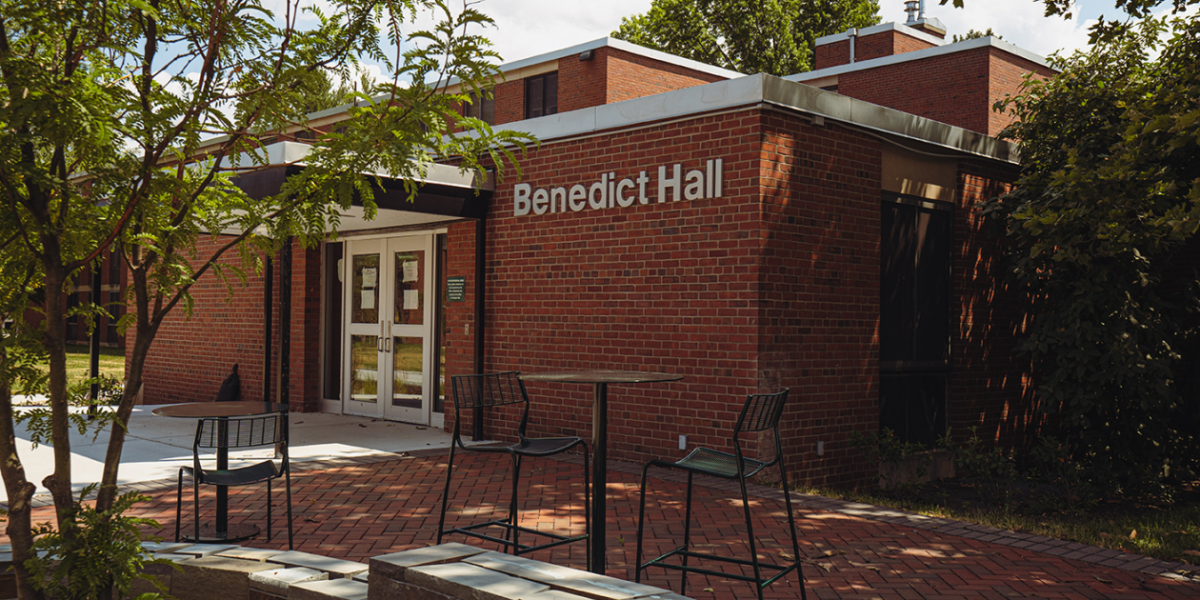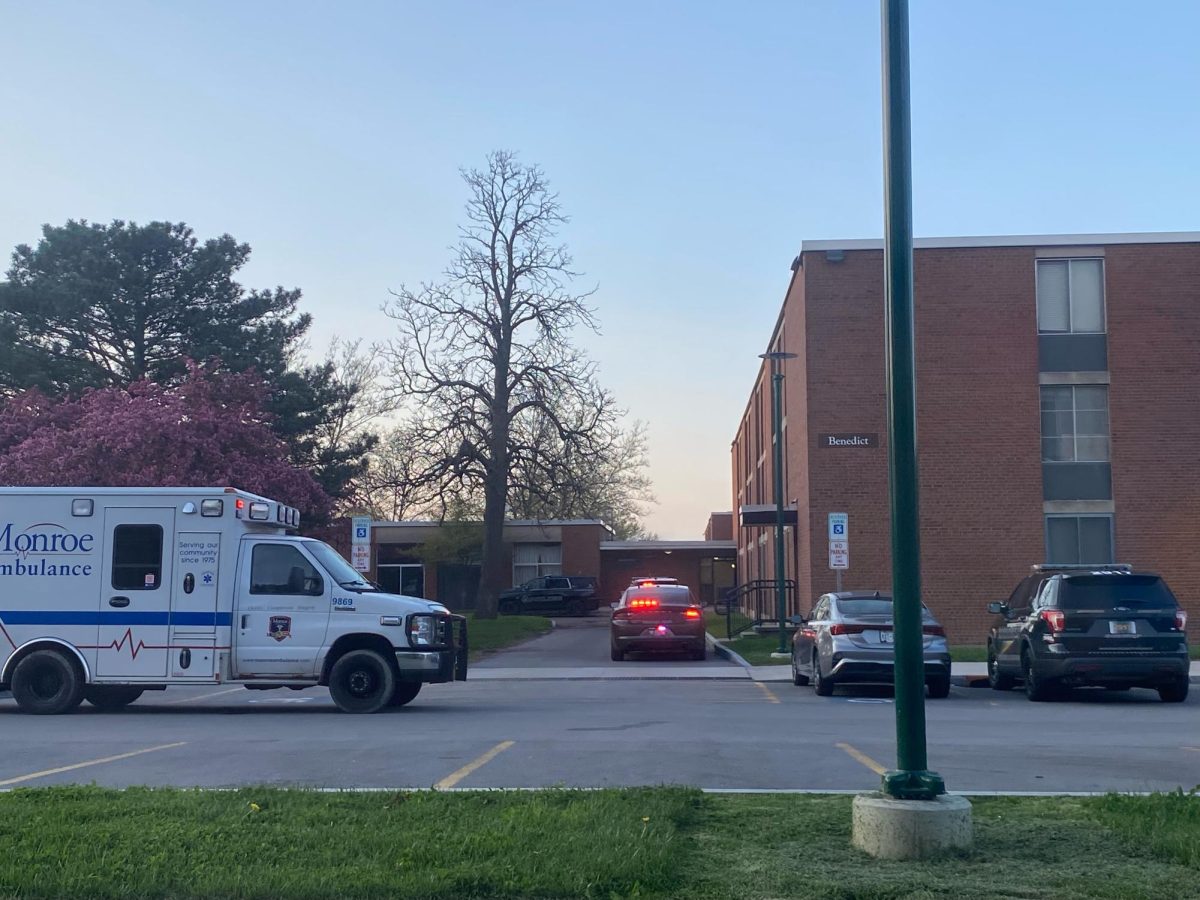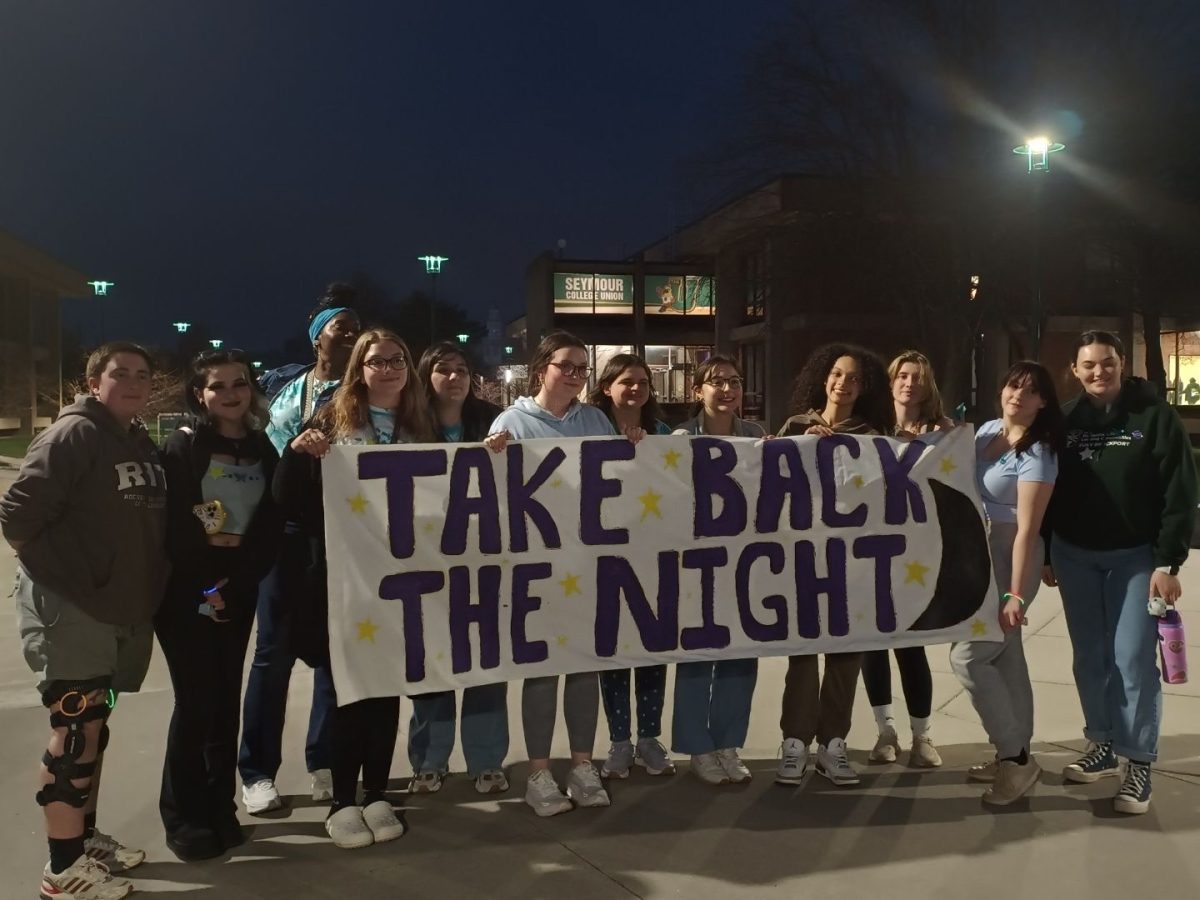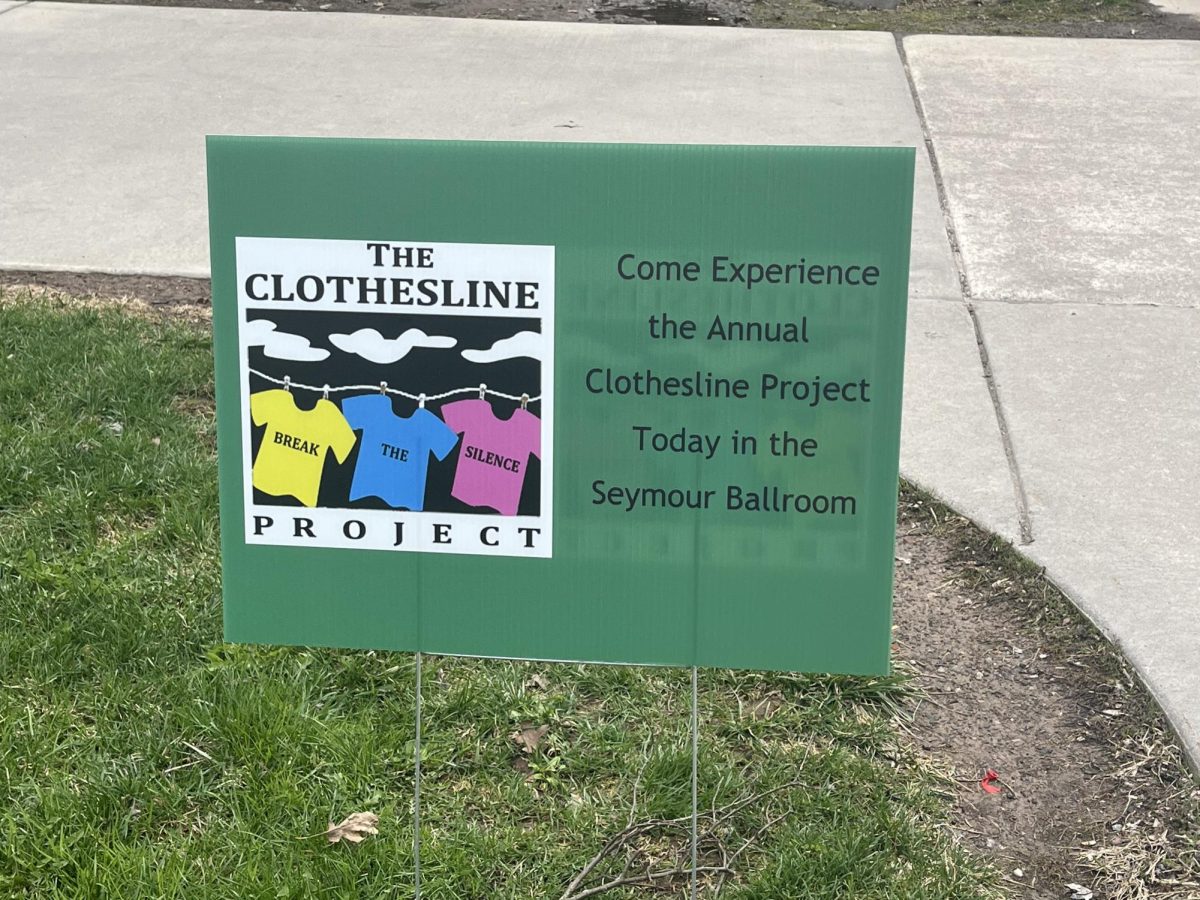The changing laws on reproductive rights negatively affect female college students. A pregnancy scare can often cause anxiety and depression in women, in addition to missed classes and late assignments.
Those who get pregnant in college are at greater risk of failing or dropping out than their childless counterparts. According to the Institute for Women’s Policy Research (IWPR), only one-third of students with children earn a degree within six years of their enrollment; in contrast, half the students who aren’t parents will manage to get a degree.
Seeing these figures, Brockport and SUNY as a whole have taken action. Students at Brockport have access to many reproductive health services. Part of the Hazen Center for Integrated Care system is the Health Promotion & Prevention Education (HPPE) office. HPPE estimated that they distributed between 10,000-15,000 condoms and other protection items during the last academic year.
“We have an online ordering service, ‘condom corner,’ that can be accessed through HPPE’s webpage on Brockport’s website,” Brockport junior Jillian Menzie, who also works for HPPE, said. “Students can order external and internal condoms, finger condoms, dental dams and lubricants. HPPE also has menstrual product ordering services. Individual students, as well as RAs, are able to place orders, and the pickups are anonymous and discrete.”
These services are essential to a student’s health. According to the IWPR, college enrollment increased and dropouts decreased, especially for young women, as a result of these services.
Another angle of attack on women’s reproductive health is the criminalization of Plan B contraceptives, which is ubiquitous among college campuses. Talking points by many conservative action groups and lawmakers portray contraceptives as aborting pregnancies, which would cause outright bans in many states. However, the Food and Drug Administration (FDA) disputes these ideas, stating that Plan B stops conception and does not cause an abortion.
Christian Zidouemba is the President of the George Washington University (GWU) Student Association; his administration made waves in January 2023 when they opened a different type of vending machine on campus—one that sells ibuprofen, Advil, tampons and Plan B for a reduced price.
“We’re excited to be able to bring changes but also excited not to do the same things that we have seen in the past,” Zidouemba said. “I think our generation is a generation of open-minded folks, a generation of folks who want to see changes, and that’s why students ask us to take a step forward to reduce the costs, so the cost isn’t a burden to students overall on campus. Our generation is the active generation who wants to see change and sees things differently.”
While universities such as Boston University have implemented “health vending machines,” as Zidouemba called them, GWU’s situation differs from the rest of these movements as it serves as a rebuke of Supreme Court Justice Clarence Thomas, who until recently, was teaching as a professor at the prestigious law school. Justice Thomas voted in favor of repealing Roe v. Wade as well as proposing the end of protections for gay marriage.
Justice Thomas is no longer listed as teaching at George Washington University.
While schools like Brockport offer many supplies such as condoms, gloves and Plan B, many students do not live on campus to obtain them. Unlike commercial stores, Hazen is not open every day. This can cause issues, especially when commercial stores can’t meet demand.
“A 2017 survey found that 40 percent of pharmacies did not stock over-the-counter emergency contraceptives on the shelf. Confidentiality is a major barrier for students, both at college health centers and off-campus pharmacies,” according to the IWPR.
These privacy concerns are at the forefront of GWU’s project, minimizing stigma and face-to-face contact for students accessing the services.
“We are working on increasing the overall availability across our campus and expanding it so it’s more discrete for students and reducing costs overall; the biggest thing we want is to ensure that it’s discreet, everywhere,” Zidouemba said.
With how fast the initial project got off the ground, it shouldn’t take too long to get the vending machines into dorms.
“We brought the project to our dean in September when all of it started; we worked on it and got in contact with many folks in vending machine businesses and so on. And then, probably around Jan. 18, was the time we finally had the vending machine on campus,” Zidouemba said.
Overall, the campus’ reaction was overwhelmingly positive, which is a general reflection of the public. New Gallup polling states that 46 percent of Americans believe that abortion rights are too restrictive; just over a quarter (26) are okay with where the laws stand now. Those numbers are higher among college-aged Gen Z. According to The Hill, for 72 percent of Americans aged 18-29, abortion should be legal in all or most cases, compared with 64 percent of Americans 30 and over.
College groups are a distilled opinion of a nation’s youth. Student organizations are a precursor to what social issues the younger generations care about and the policies they will support and vote for later. Contraceptives and abortion rights are something that these student organizations are willing to fight for.























